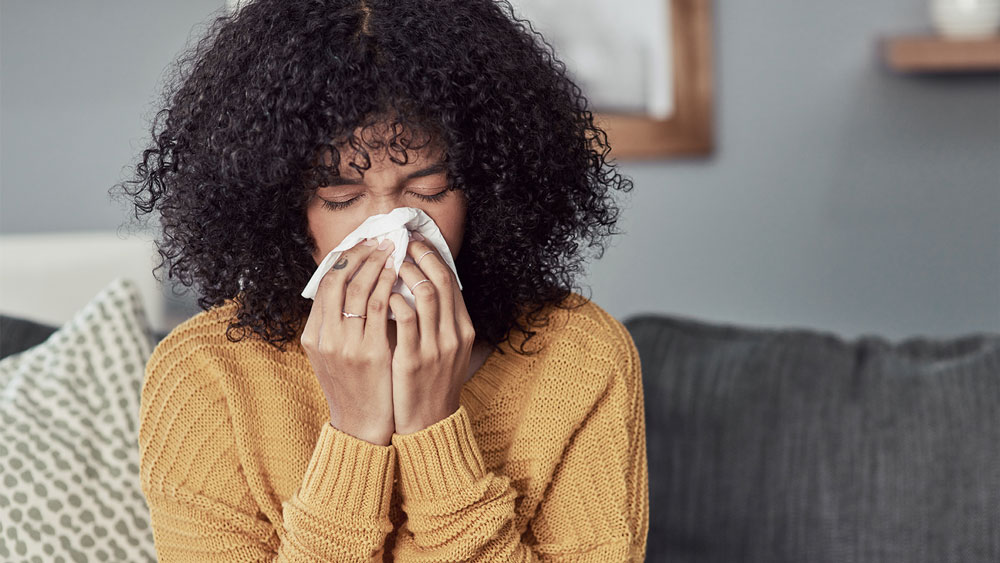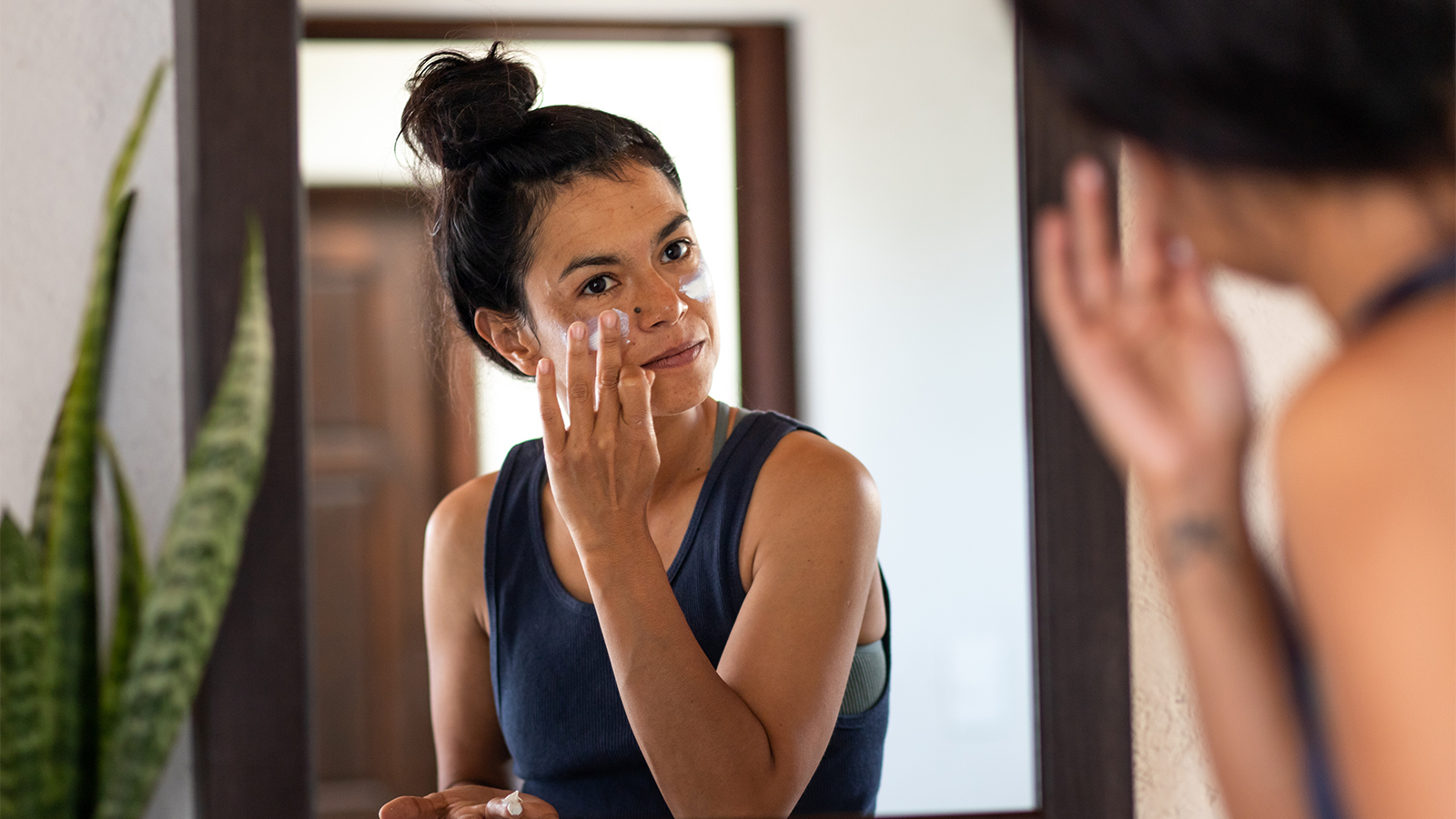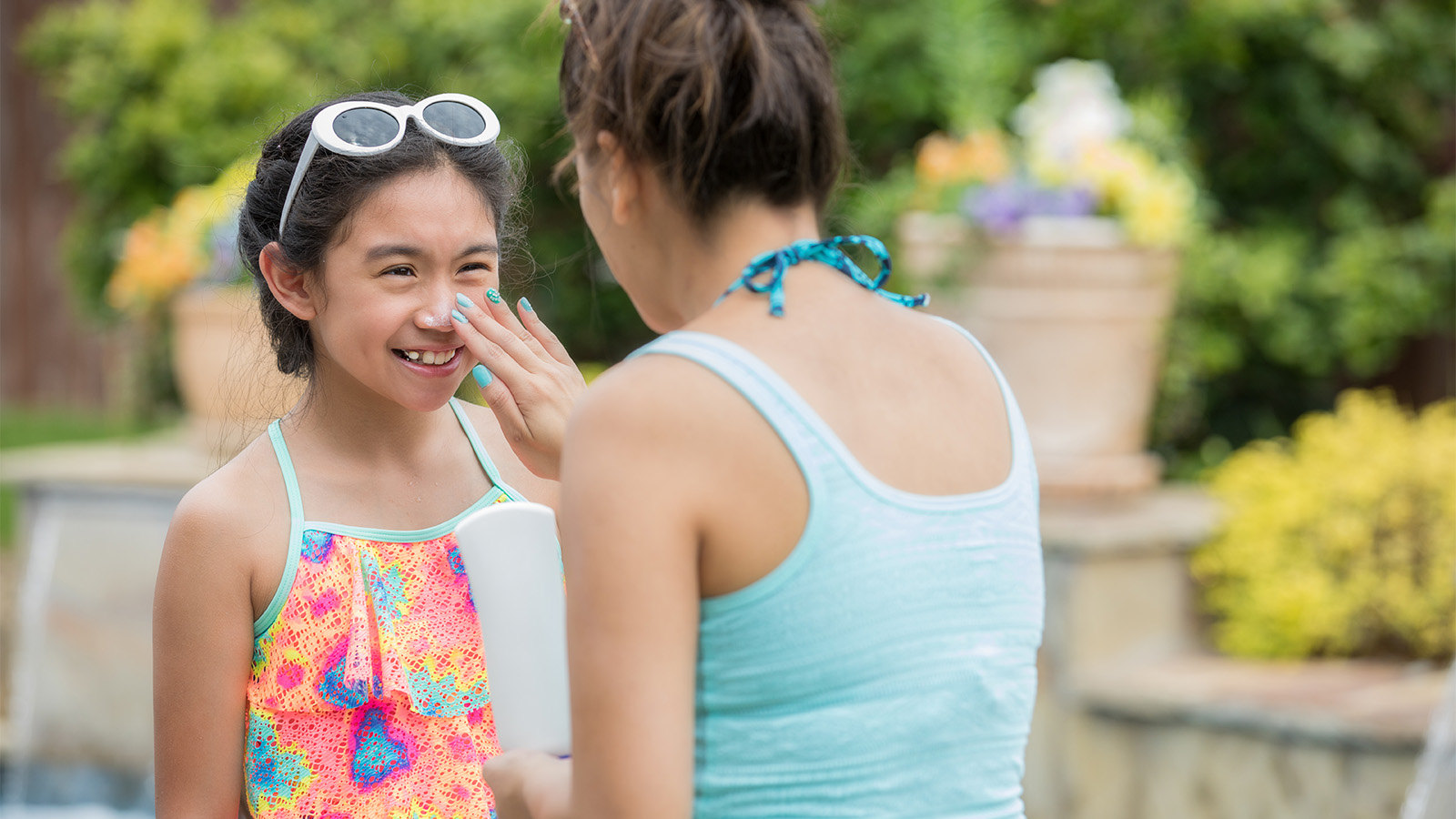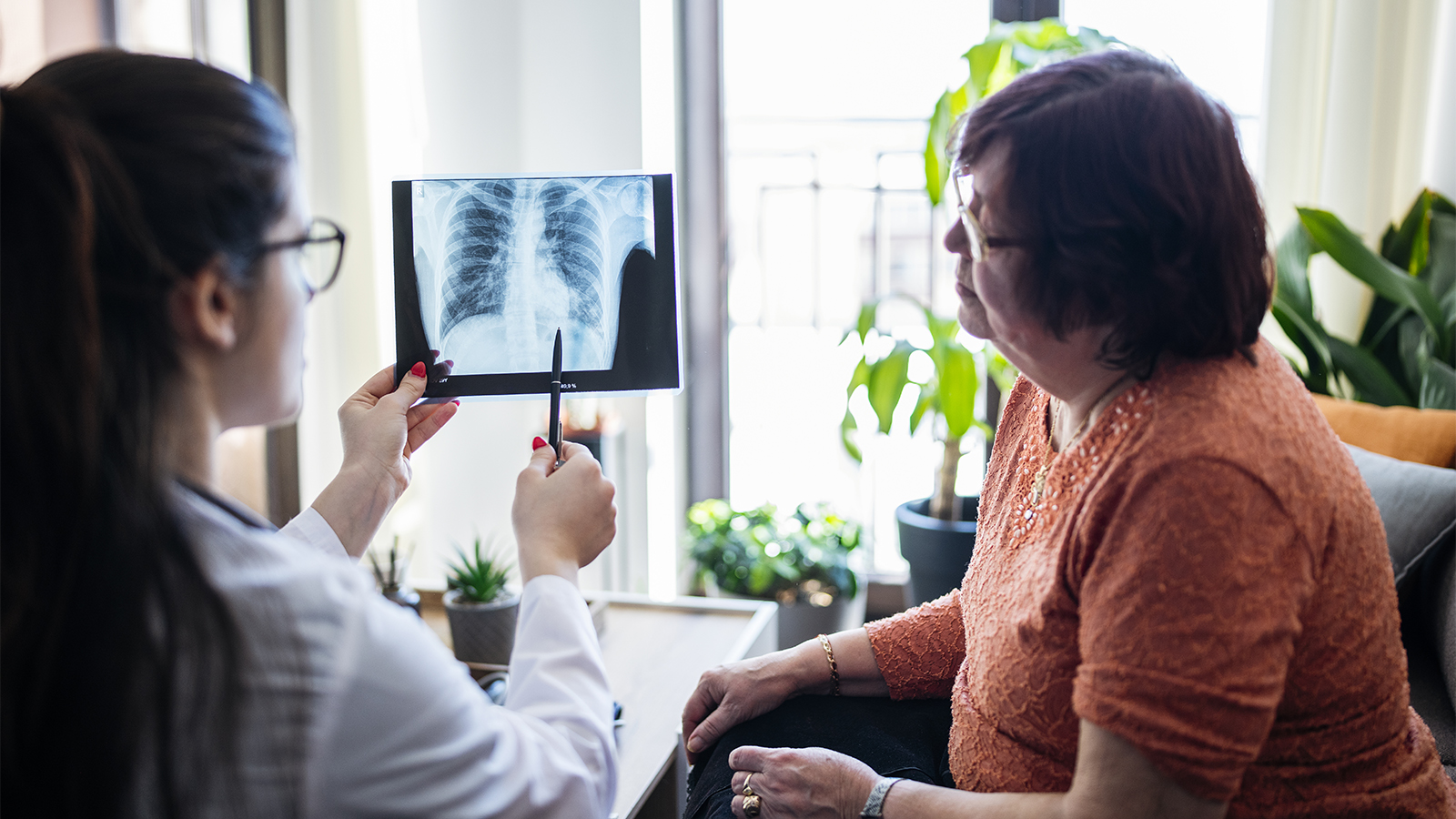Beat the Bugs and Save Your Summer
The heat is here—and so are the bugs. Learn how to defend yourself against South Jersey's most infamous bloodsuckers and find out what to do if you need treatment.

By Farrel Silverman, DO, Virtua Primary Care
The heat is on, and the bugs are loving it as much as we are. Here's what you need to know to treat and prevent bug bites so they don't spoil your summer fun.
MOSQUITOES: If you know someone who seems to attract every mosquito in the zip code, you're not imagining it. Studies show certain species may be more drawn to people based on:
- Blood type (type O is a favorite)
- Sweat and body heat
- Carbon dioxide
- Pregnancy
- Even beer consumption
Whatever your "mosquito magnet" score, bites are a major annoyance and sometimes, a serious health risk. Some mosquitoes carry illnesses like the West Nile virus.
How to protect yourself:
- Use an insect repellent that contains DEET, which works best
- Wear long sleeves and pants when outdoors
- Remove standing water around your home
If you're bitten:
- Apply cortisone cream to ease the itch
- Avoid scratching to prevent infection
- Monitor for signs of illness, such as weakness, confusion, or fever and call your doctor if symptoms develop
TICKS: Ticks are more than just a nuisance, they’re dangerous disease-spreaders. While Lyme disease gets most of the spotlight, ticks can also transmit Rocky Mountain spotted fever, Babesiosis, and Ehrlichiosis.
- These pests need hours to transmit harmful bacteria, so early removal is key.
- Check yourself, kids, and pets after hiking, gardening, or spending time in grassy or wooded areas.
If you find a tick:
- Use tweezers to carefully remove it, gripping as close to the skin as possible
- Wash the area (and your hands) with soap and water
- Clean the tweezers with an alcohol wipe
- Apply antibiotic ointment like Neosporin to the bite
- Watch for symptoms such as rash, fever, fatigue, headache, or body aches. Contact your primary care doctor or visit Urgent Care in person or through telehealth if you’re concerned.
CHIGGERS: Tiny but mighty, chiggers are invisible mites that hide in tall grasses and attach to exposed skin. You won’t know you’ve been bitten until the itching starts hours later and the discomfort can last for weeks. If you've been in a grassy area and notice intense itching or red bumps, you may have encountered chiggers.
Treatment tips:
- Wash the affected area with hot, soapy water
- Use an over-the-counter lice shampoo to kill remaining mites
- Apply anti-itch cream or take an oral antihistamine
- Visit Urgent Care if itching persists or worsens
BEES, WASPS, AND HORNETS:Bee stings can trigger allergic reactions, especially for those who are sensitive. Unlike bees, wasps, hornets, and yellow jackets can sting repeatedly adding to the discomfort.
For mild reactions:
- Remove the stinger (if visible)
- Clean the area thoroughly
- Apply hydrocortisone cream and a cold compress
- Take an over-the-counter antihistamine to reduce swelling
- Watch for severe symptoms like swelling of the lips, tongue, or throat, chest tightness, or trouble breathing. These could indicate a serious allergic reaction. If you notice any of these, call 911 or go to the emergency room immediately.
- If you're diagnosed with a sting allergy, your doctor may prescribe an EpiPen, a life-saving injectable treatment for emergency use.
What can you do to prevent bug bites?
Follow these summer safety basics:
- Stay out of tall grasses and thick vegetation when possible
- Wear long sleeves, pants, and high socks when outdoors
- Use an EPA-approved insect repellent containing DEET
- Avoid perfumes or scented lotions that may attract bugs
Where to go for care depends on the severity of your symptoms:
- Redness and minor sting or itching: self-treat at home, taking an antihistamine like Benadryl, and applying topical ointments to relieve itch and avoid infection.
- Bullseye rash; uncontrollable itching from chiggers: see your primary care doctor or Urgent Care, in person or via telehealth.
- Fatigue, body aches, fever, headache following an insect bite: see your primary care doctor or visit Urgent Care in person or by telehealth.
- For a sudden and severe reaction like throat tightness, tongue or lip swelling, or difficulty breathing: these are signs of a potentially life-threatening allergic reaction. Call 911 or go to a hospital emergency room.
Quickly treating your bites and stings may minimize your reaction and irritation. Stock your medicine cabinet with an antihistamine like Benadryl, topical hydrocortisone cream for relief from itching, and a topical antibiotic ointment to help prevent infection.
Get the care you need
A Virtua Primary Care clinician can treat your bug bites – and much more. You can also get care on the spot from anywhere in New Jersey with an Urgent Care Telehealth visit – or walk-in care at one of Virtua's convenient urgent care centers throughout South Jersey.
When you need emergency care, don't delay. Virtua's emergency rooms are open 24/7 and employ rigorous safety and cleaning protocols to ensure your safety.
There's So Much More to Explore
Discover expert insights, inspiring stories, health tips, and more by exploring the content below!

How to Use OTC Pain Relievers Safely: Acetaminophen vs. NSAIDs Explained

Understanding Food Addiction: Causes, Symptoms, and Recovery Strategies

10 Hand Washing Tips to Keep You Healthy All Year

Cervical Cancer Screening Guidelines: What You Need to Know

HeartTalk Magazine

How to Spot the Early Signs and Symptoms of a Stroke

How Weight-Loss Surgery Can Improve Diabetes, Heart Health, and More

How to Achieve Your Health Goals This Year

Knee Replacement Rehab: 7 Exercises to Restore Your Strength and Range of Motion

Caregiving During the Holidays: Ways to Manage Stress and Find Joy

Bioidentical Hormone Replacement Therapy Pellets: Relief for Menopause and Andropause Symptoms

COVID-19 Vaccines and Pregnancy: FAQs

COMFORTing Tips to Avoid Holiday Heartburn

How to Tell the Difference Between Cold, Flu, and COVID-19

4 Exercise Tips to Help You Reverse High Blood Pressure

Daily Wellness Checklist: Simple Habits for Feeling Good Inside and Out

3 Reasons Why Now's the Time to Find Relief From Varicose Veins

The Brain Health Checklist: 11 Questions Everyone Should Ask

How to Get and Stay Healthy This Fall

How to Reverse Prediabetes and Prevent Type 2 Diabetes

6 Ways to Get More Out of Your Daily Walk

Is Cancer Hereditary? What You Need to Know About Your Genetic Risks

Is Your Post-Pregnancy Belly Bulge a Sign of Diastasis Recti?

Your Guide to Mammograms: When to Get Screened and What to Know

The Top 10 Foods That Boost Your Brain Health

Is It Safe to Exercise During Pregnancy?

Prevent Yard Work Injuries: Tips for Mowing, Gardening, and Raking

Where To Seek Mental Health Help And Treatment

How to Curb Nighttime Snack Cravings

Is Your Daily Walk Making You Really Sore?

IBS and Alcohol: Can You Still Enjoy a Drink?

'Feeling Joy Again': ECT Brain Stimulation Therapy Restores Ashley's Well-Being

Easy, Healthy Lunch Ideas for the Beach

How to Stay Cool and Prevent Heat Illness All Summer Long

Do Not Get Burned by These Sunscreen Myths

Beat the Bugs and Save Your Summer

How to Have a Healthy Pregnancy if You're Overweight

Why You Get Sick on Vacation (and How to Stay Healthy While Traveling)

6 Hot Tips for a Safer Summer

4 Surprising Health Truths You Should Know

5 Interesting Facts About Your Heart

Is Low Sex Drive Normal? Revealing the Complex Causes of Low Libido in Women

5 Feel-Good Activities to Explore Around South Jersey

Stress Incontinence vs. Urge Incontinence: What's the Difference?

3 Changes You Can Make Today to Lower Your Cancer Risk

A Lung Cancer Screening Could Save Your Life

Mood Swings vs. Mood Disorders: Know the Signs and Get Help
Are emotional ups and downs disrupting daily life? Learn common signs of mood disorders, and when to talk to a doctor about diagnosis and treatment options.

Take Pride in our Health: Must Dos for LGBTQ+ Preventative Care

Protect Yourself From Tick Bites and Lyme Disease

10 Quick Ways to De-Stress

4 Ways to Stay Fit and Healthy on a Budget

From Restless to Restful: How Movement Improves Sleep

5 Simple Ways to Spring Clean Your Wellness Routine

Best Foods for Kidney Health

5 Essential Winter Foot Care Tips When You Have Diabetes

Sweet Music: Trust, Teamwork Save Justin from Heart Attack

Your 10-Point Plan to Avoid Winter Weight Gain

Surprising Symptoms May Signal Stroke In Women

8 Key Steps to Better Blood Pressure Control

5 Back Stretches for the Work-From-Home Workweek

The HPV Vaccine: A Powerful Shield Against Cervical Cancer

How to Prevent and Treat Urinary Tract Infections

6 Numbers Key to Keeping Your Heart Healthy

4 Easy Ways to Treat and Prevent Runner's Knee

Five Mindfulness Tips That Can Help Heal Your Heart
Working from Home? Take a Quick Break to Stretch Your Wrists

Love Your Heart: Essential Care Tips for Every Stage of Life

How Do I Measure My Blood Pressure at Home?

How Do I Improve My Cholesterol Levels?

3 Ways to Reduce Your Stroke Risk

How Sex Keeps You Healthy as You Age

Protect Your Child From HPV and Related Cancers

Why IUDs Might Be The Most Effective Birth Control

5 Things You're Too Embarrassed to Tell Your OBGYN

4 Not-So-Crazy Questions to Ask Your Doctor

